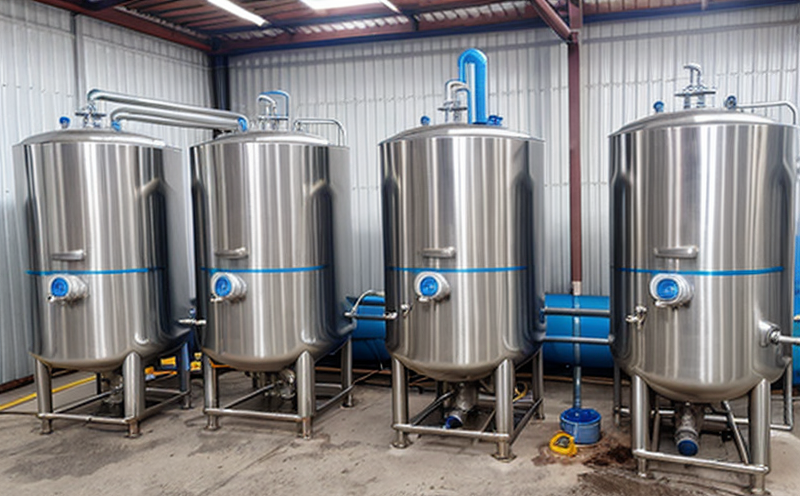EPA 200.8 Metals by ICP MS Test in Cooling Water
The EPA Method 200.8 is a widely recognized analytical technique for the determination of metals in various water samples, including cooling water systems used in industrial facilities and power plants. This method is particularly important for ensuring compliance with environmental regulations aimed at preventing contamination of surface waters by toxic heavy metals from industrial processes.
Cooling water systems are designed to remove heat generated during manufacturing or processing operations. However, these systems can become contaminated by the release of metals from corrosion within the system or through leaching from cooling tower additives and other chemicals used in treatment. The presence of metals like copper, zinc, iron, manganese, nickel, and others can lead to various issues such as scaling, fouling, and microbial growth, which affect the efficiency and lifespan of these systems.
The EPA 200.8 method employs Inductively Coupled Plasma Mass Spectrometry (ICP-MS) for accurate measurement of trace levels of metals in cooling water samples. This technique offers high sensitivity, precision, and accuracy, making it suitable for detecting even very low concentrations of metals that may be harmful if present above permissible limits.
Preparation of the sample involves filtration to remove particulate matter and subsequent dilution if necessary before analysis. The choice of filter is critical; typically, a 0.45 µm pore size filter is used to retain larger particles while allowing smaller contaminants through for analysis.
The test procedure includes several steps: digestion or dissolution of the sample matrix using appropriate acids (such as nitric acid), followed by dilution to achieve desired concentration ranges suitable for ICP-MS detection. Once prepared, the samples are introduced into the ICP-MS instrument where they ionize and undergo mass separation based on their atomic masses.
Results from this method provide critical information about metal concentrations in cooling water systems that can inform maintenance schedules, identify potential sources of contamination, and help ensure compliance with regulatory standards. Regular monitoring using EPA 200.8 is essential for maintaining optimal performance and minimizing environmental impacts associated with industrial processes.
Applied Standards
| Standard | Description |
|---|---|
| EPA Method 200.8 | Procedure for the determination of metals in water by Inductively Coupled Plasma Mass Spectrometry (ICP-MS). |
Industry Applications
- Mining operations to monitor metal release from equipment.
- Petroleum refineries ensuring proper corrosion control measures.
- Pharmaceutical plants where water quality directly impacts product safety.
- Food and beverage companies maintaining hygiene standards for process waters.
- Tier 1 power plants managing boiler feedwater chemistry to enhance efficiency.
Quality and Reliability Assurance
The quality of results obtained from the EPA Method 200.8 relies heavily on proper sample preparation, accurate calibration of instruments, and adherence to standard operating procedures.
Calibration is crucial; it ensures that the instrument accurately measures metal ions against known standards. Regular maintenance of the ICP-MS equipment helps maintain consistent performance over time. Additionally, quality control samples should be included in every batch run to verify reproducibility and accuracy of results.
Data interpretation also plays an important role in ensuring reliable outcomes. Analysts must have thorough knowledge of both analytical chemistry principles as well as industry-specific applications so they can correctly interpret data trends indicative of potential problems within cooling water systems.





